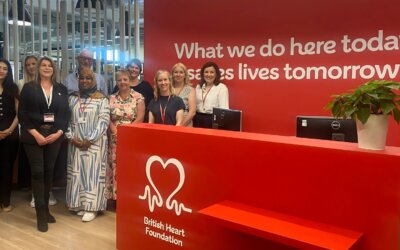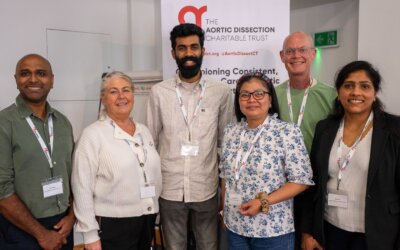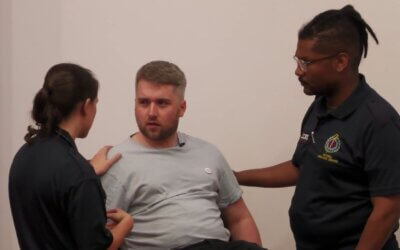At the Society for Cardiothoracic Surgery in Great Britain and Ireland’s (SCTS) annual meeting, a significant segment dedicated to aortic dissection caught the attention of many attendees. Our lunchbox session in partnership with UK-AS and Terumo Aortic, titled The Future for AD: Beyond the Toolkits; Devices & Data, was a deep dive into the evolving landscape of aortic dissection treatment, focusing on the integration of innovative devices and the critical role of data in enhancing patient care.
Beyond the Toolkit
Catherine Fowler opened the discussion by highlighting the importance of devices and data as essential components of an elective toolkit for managing aortic dissection. This introduction served as a foundation for the session, connecting the dots from our previous year’s lunchbox session to focus the current discussion on future advancements.
Devices
Dr Colin Bicknell outlined the EARNEST trial, which is funded by NIHR. The trial will investigate early intervention in uncomplicated type B aortic dissection and its potential to reduce the need for subsequent interventions. Colin’s talk highlighted the importance of timely treatment strategies in improving patient outcomes for aortic dissection.
Prof Aung Oo discussed the challenges associated with a persistent false lumen after type A aortic dissection repair. He underlined how new devices have enabled more extensive repairs during the initial surgery, potentially leading to better long-term outcomes for patients. This segment of the session provided a look into the technological advancements that are shaping surgical approaches to aortic dissection.
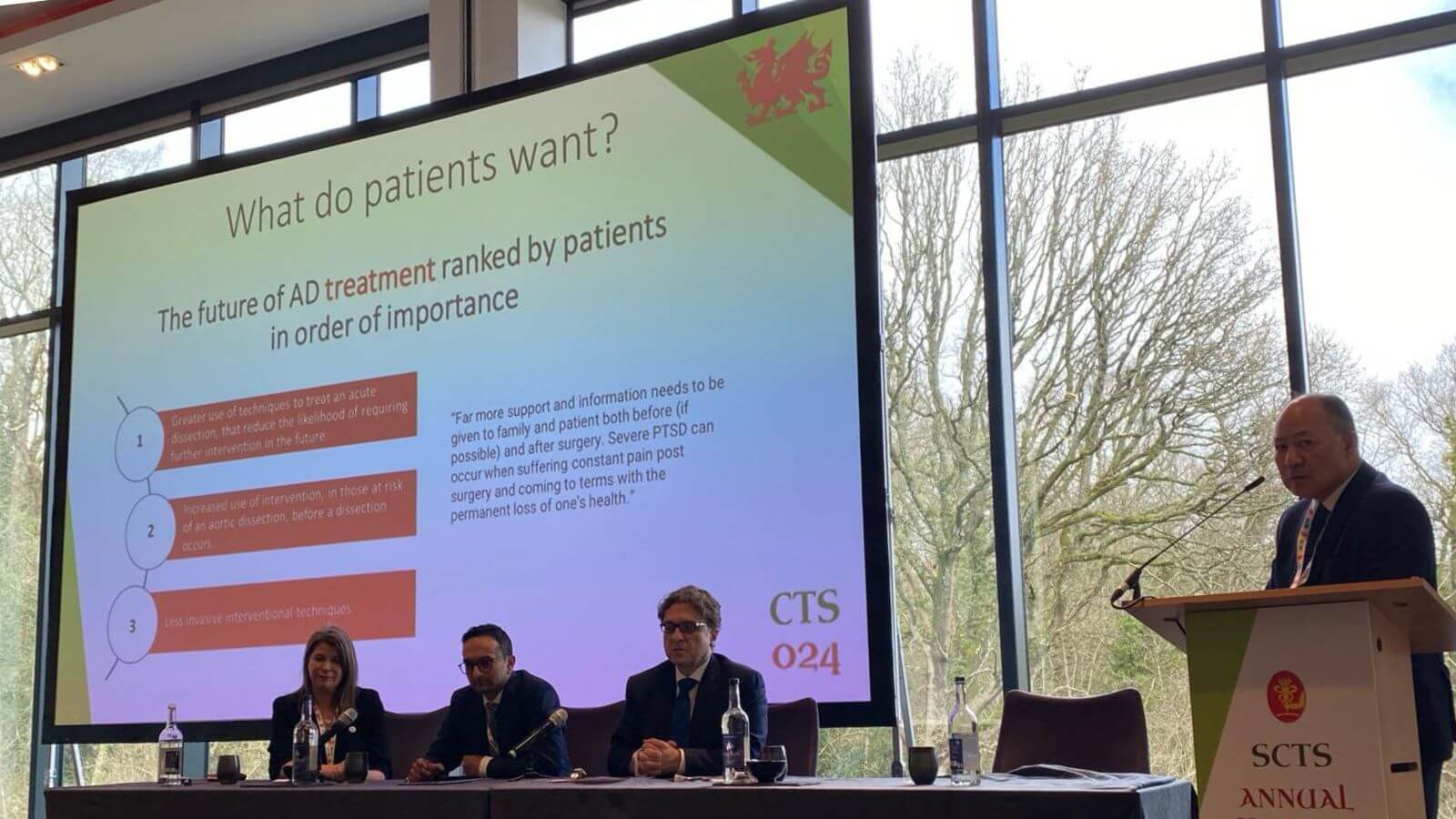
Data
Manoj Kuduvalli’s contribution focused on the necessity of reliable data for measuring performance and improvements in aortic dissection treatment. He highlighted the current challenges in data collection and the need for better systems to track patient outcomes, emphasising the role of data in driving evidence-based practices in cardiothoracic surgery.
Lastly, Arun Pherwani explored the potential of Hospital Episode Statistics (HES) data for generating useful clinical insights. Despite its administrative nature, HES data can be analysed to produce valuable information for long-term patient follow-up, illustrating the broader applications of data in understanding and improving patient care pathways.
The NCIP tool supports Medical Directors in clinical leadership, clinical governance and promoting a culture of reflective practice amongst consultants in their trust.
The unique @NHSGIRFT NCIP AAD dashboard is condition specific for AAD first then procedure specific. This allows capture of medically treated TBAD. NCIP used HES data, readily available, complete, good for hard outcome’s, longitudinal analysis & works with registries NVR / NICOR pic.twitter.com/mqbQT7T160
— Arun Pherwani (@adpherwani) March 18, 2024
The lunch box session, through its broad discussions, stressed the intersection of technology, more extensive early intervention, and data analytics in advancing aortic disease treatment. It provided a platform for experts to share their knowledge and for attendees to engage with the latest trends and challenges in managing this complex condition.
The Elective Toolkit Strategy
In an important update at the SCTS annual meeting, Graham Cooper provided a comprehensive update on the Acute Aortic Dissection (AAD) Toolkit and an overview of the Elective Toolkit for Aortic Surgery in his role as the Clinical Lead for NHS England’s AAD Toolkit. His keynote lecture concentrated on the practical aspects and strategic goals of the toolkit, aiming to enhance the long-term management of aortic dissection.
The toolkit, originating from the campaign work by the charity, aims to standardise post-treatment care, ensuring that patients receive consistent and specialised attention in their recovery and ongoing management phases. The emphasis on specialist teams highlights a move towards more tailored and expert care for aortic dissection patients, recognising the complexity and variability of the condition.
Acknowledging the hereditary factors that can contribute to aortic dissection, this initiative aims to identify at-risk individuals early on, allowing for preventative measures or early intervention. The focus on genetic screening represents a proactive approach to aortic dissection care, extending the scope of management to include familial risk assessment and mitigation.
By integrating specialist follow-up care and genetic screening into the management plan, the toolkit aims to provide a more cohesive and effective approach to treating and managing aortic dissection, with the ultimate goal of improving patient outcomes and quality of life.
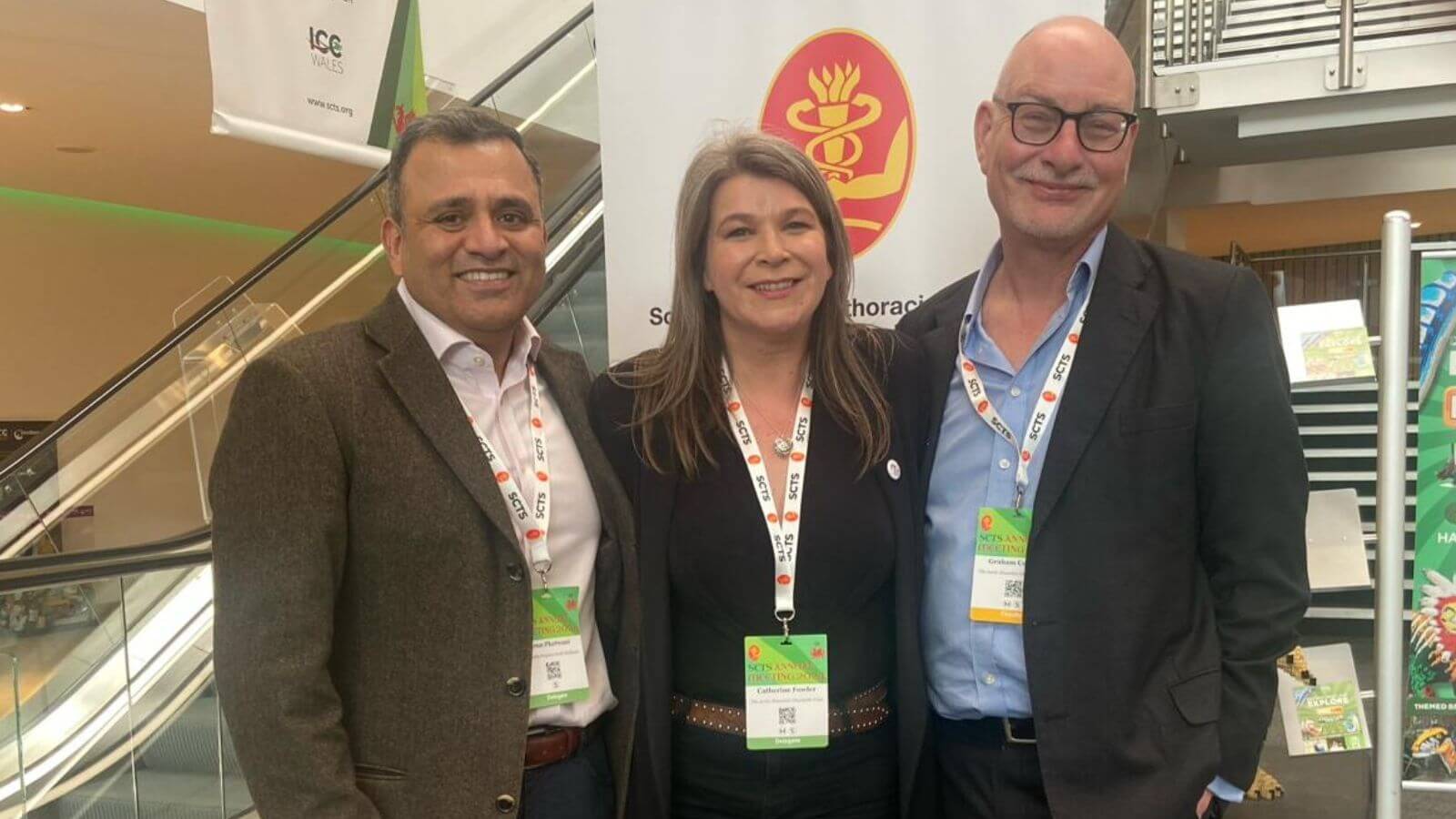
Patient Advocacy
During the SCTS annual meeting, the charity was pleased to join the UK Aortic Society at their meeting. Our involvement brought a unique patient-centric viewpoint to the discussions, primarily dominated by clinicians, providing an important update on our recent initiatives and research in aortic dissection management.
This presence emphasised the critical importance of integrating the patient voice into the broader conversation, ensuring that the lived experiences and needs of those affected by aortic dissection are not only heard but are also a driving force in shaping future care and research directions.
Our charity’s participation in the SCTS annual meeting underlines our dedication to fostering collaboration between healthcare professionals and the patient community. By championing a more inclusive approach, we aim to ensure that patient insights are integral to shaping a compassionate and effective healthcare system.


